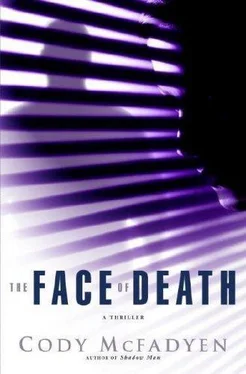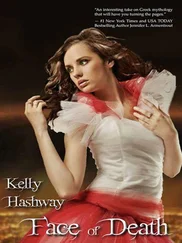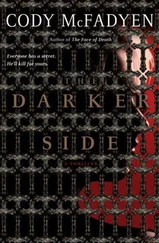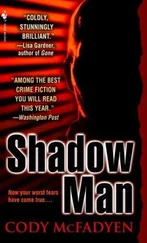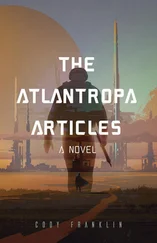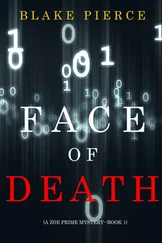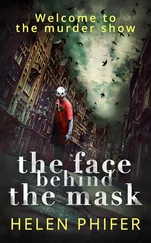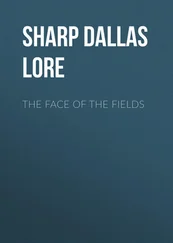"Lot of blood though," Barry notes. "Can't even see the bottom from some angles."
I look around the yard. It's walled on every side by actual six-foothigh concrete and brick, a rarity in suburban Los Angeles. Ivy grows along the top and combines with tall bushes in this and adjoining yards to create tremendous privacy. The house itself may have been built to let the light in, but the backyard was all about keeping out prying eyes.
I think about the room upstairs, splashed with blood. He took his time up there, I think. Playing and painting and having a ball. That would have been messy work.
"The killer used the pool," I say.
Callie raises her eyebrows. Barry gives me a quizzical look. I realize that I'm a step ahead; I've seen the bedroom, they haven't.
"Look, he's doing this midday. It's a Saturday, so people in this neighborhood are home. Even more significant: It's a beautiful, sunny Saturday. People are out in their yards, riding their bikes, enjoying the weather." I point toward the master-bedroom window. "He played in the bedroom. Blood's everywhere on the ceiling and walls--but it's not spatter from the killings. It's there because he put it there. He would have been covered in blood. He'd have to wash it off somehow, and he wanted to do it here. Liked doing it here."
"Why not use the bathroom inside?" Callie asks. "Quite a risk, coming into the yard, don't you think? Privacy or not--he has to leave the house proper. Someone could come knocking while he's out here, or come home, and he'd never know it."
"For one thing, it's smarter," Barry says. "He probably knows that we'll be checking the drain traps in the bathrooms. It's going to be a lot harder to find anything that belongs to him in the pool filtration system. And chlorine isn't exactly investigation friendly."
I examine the pool. It's about twenty feet long and appears to be a uniform depth all the way across. A single set of steps leads down into the water. Glossy clay tiles surround it and form a deck.
"Tile is wet in places," I observe.
"We need to get out of here," Callie says, her voice sharp.
"Right now."
Barry and I look over at her, surprised.
" Why is it wet?" she asks.
I get it. "Because he walked around out here, probably naked, probably barefoot, and probably left footprints. That we'll probably destroy if we keep tramping around."
"Right," Barry says. "Oops."
"They're going to have to go over this entire area with an ultraviolet light," Callie says. "Inch by agonizing inch. Thank goodness that's someone else's job tonight."
Trace evidence, including latent prints, semen, and blood, can fluoresce under ultraviolet light. Callie is right. If he was nude out here and walking around with impunity, this is a potential hot spot for evidence. We move back through the sliding glass door, but continue gazing out into the yard.
"You said you think the pool was about more than washing away evidence?" Barry asks.
"I think . . ." My voice trails off. It comes to me the way it always does: swimming from out of some dark place, fully formed. "I think he liked the fact that he could do something dark out in the open. He killed this family in the middle of the day, he all but bathed in their blood, and then he stripped down and took a nice, long swim while their bodies began to bake in an unventilated home. In the meantime, the people in this neighborhood held their kids' birthday parties and clipped their hedges and barbecued their steaks, not knowing that he was here, enjoying the day in his own way." I look at Barry. "The feeling of triumph must have been overwhelming. Like a vampire walking around in the daylight. This scene is about power and ownership. Confidence in coming here during the day, confidence in his use of knife as the murder weapon. It fits."
"Sick fuck," Barry says, shaking his head. He sighs. "So, he does a few laps in the pool, maybe lies around listening to the neighbors while he pats himself on the back. The question though is sequences. You say the scene downstairs was fresh. I'll buy that, but how does it play? He kills two vics upstairs, creates a little abstract art with their blood, comes and swims, then kills the third victim? And what's Sarah doing while all this is happening?"
I shrug. "We don't know yet."
"I hate when they make me work for it." He sighs. "Hey, Thompson!" he bellows, startling me. As if by magic, the twentysomething uniform who had tried to prevent our entrance earlier today appears.
"Yes, sir?" he asks.
"Don't let anyone into the backyard unless the head of CSU says so."
"Yes, sir." He takes his place by the sliding glass door. He's too young. Still excited about getting to be here.
"Ready to see the bedroom?" Barry asks us.
It's a rhetorical question. We're sniffing the trail, making things happen, putting the picture together in our heads. Get it while it's hot.
We leave the family room and head up the stairs, Barry taking the lead, Callie behind me. We reach the top. Barry peers into the room.
"Is it necessary for both of you to come in?" a critical voice asks.
"To tramp all over everything?"
This sourness belongs to John Simmons, head of this shift's LAPD Crime Scene Unit. He's crabby, crusty, and absolutely untrusting of anyone but himself when it comes to handling the evidentiary part of a homicide. These traits are forgivable; he's one of the best.
"Three, actually," Callie says, moving forward so that he can see her too.
Simmons is not a young man. He's been doing this for a very long time, he's in his late fifties, and it shows. Smiles, for him, are like diamonds: rare, and only worn on the right occasions. Callie, it appears, merits one.
"Calpurnia!" he cries, grinning from ear to ear. He moves toward us, shoving Barry and me out of the way to embrace her. Callie smiles and hugs him back while Barry looks on, bemused. I have seen this behavior before, and know its source. Barry does not.
"I did an internship under Johnny while I was getting my degree in forensics," Callie explains to Barry.
"Very gifted," Simmons says, fondly. "Calpurnia was one of my few successes. Someone who truly appreciates the science."
Simmons looks over at me now. His study of my scars is frank, but it doesn't bother me. I know the basis of his interest is judgment-free curiosity.
"Agent Barrett," he says, nodding.
"Hello, sir."
I've always called John Simmons "sir." He's always seemed like a "sir" to me, and he's never disabused me of the fact. Callie is the only person I know of who calls him "Johnny," just as he's the only person I can imagine getting away with calling her "Calpurnia," the given name she hates with such ferocity.
"So, Calpurnia," he says, turning back to Callie, "I trust you'll watch over my crime scene? Ensure nothing gets trampled or touched that shouldn't?"
Callie raises her right hand, puts her left one on her heart. "I promise. And, Johnny?"
She tells him about the backyard. He favors her with another fond smile.
"I'll get someone onto that directly." He gives Barry and me a last, suspicious look before stepping aside.
We enter the room. Simmons heads downstairs to crack the whip, leaving us alone. For all his grumbling, he understands this part of it--the need to soak it in. He's always given me the space I need to do this, never crowding me or peering over my shoulder. Now that I don't have my attention fixed on Sarah, I stop and really look.
Mr. and Mrs. Dean and Laurel Kingsley, as I now know them to be, fall easily into the "fit-forties" niche. They are tanned, with goodlooking faces, muscular legs, and a certain polish about them, a vitality I can still sense, even in these circumstances.
"God, he was confident," I say. "Not just in coming here on the weekend and in the daytime. He subdued two fit, healthy parents and two teenage children."
Читать дальше
